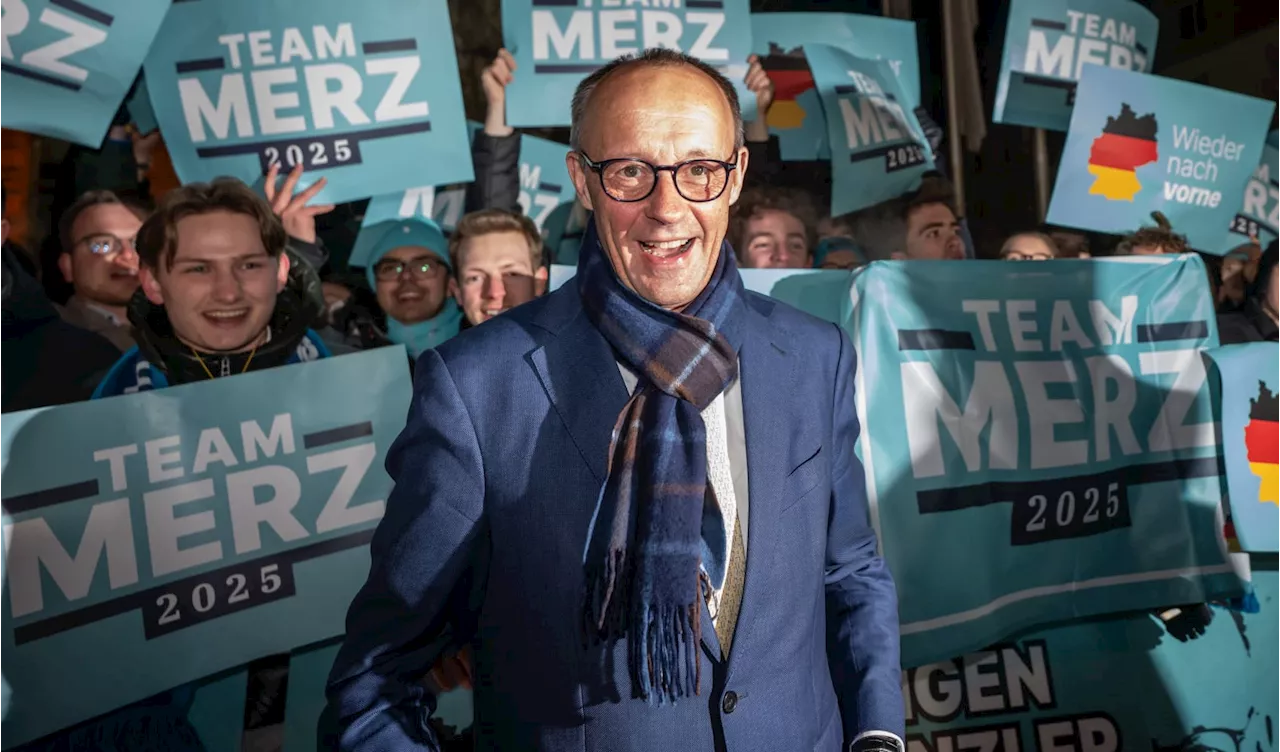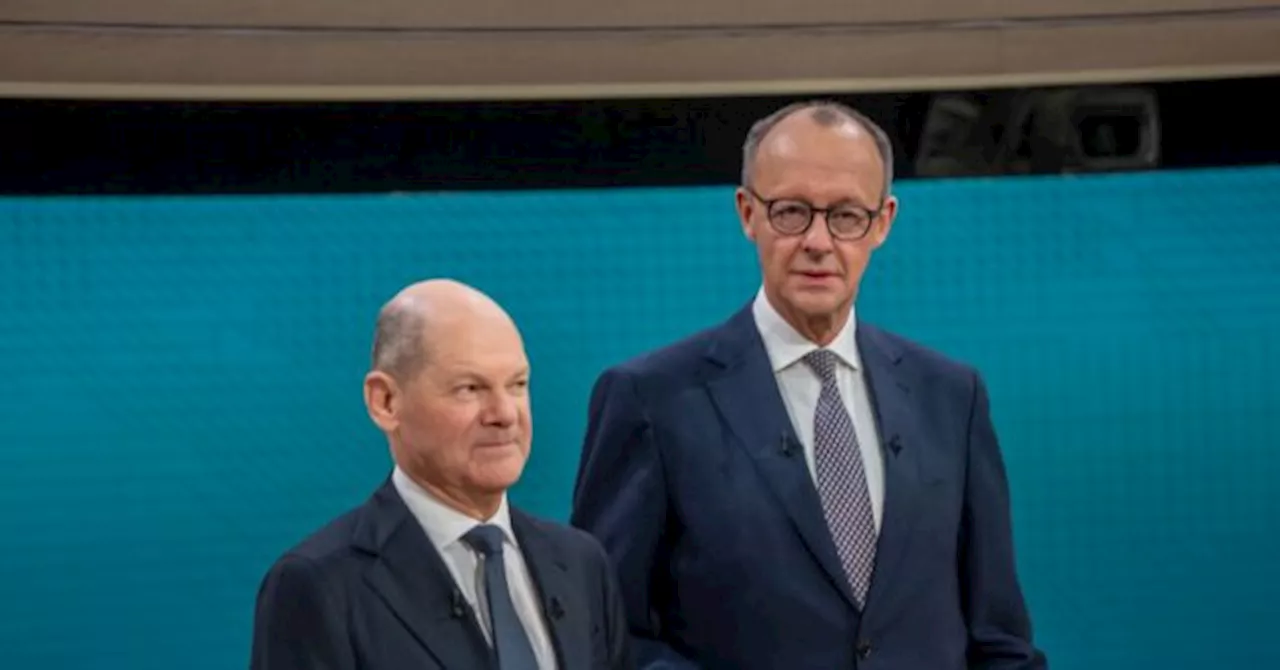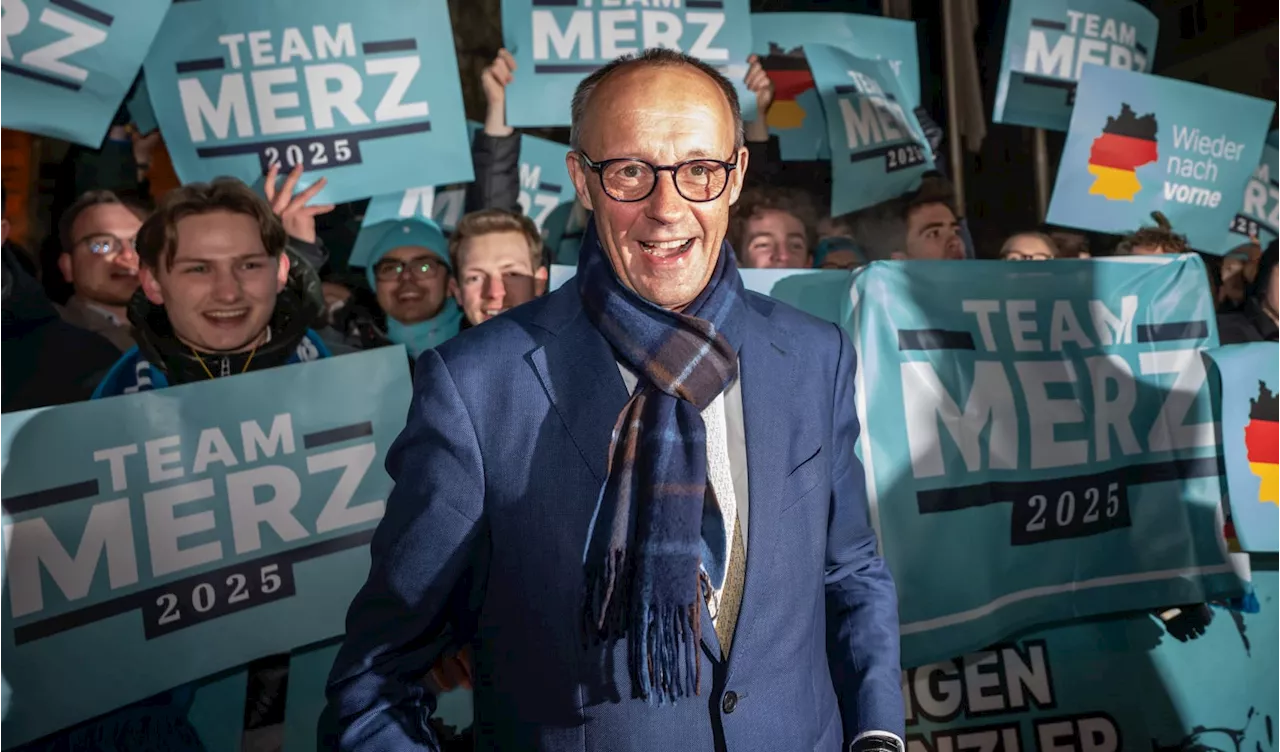Friedrich Merz, a migration hardliner and long-time rival of Angela Merkel, is set to become Germany's next chancellor, leading a government formed by the Christian Democratic Union (CDU) and its sister party, the Christian Social Union (CSU). Merz's leadership promises a shift in economic and migration policies, with a focus on tax reductions, deregulation, and stricter border controls.
Friedrich Merz is on the verge of becoming Germany 's next chancellor, leading a government formed by the Christian Democratic Union (CDU) and its sister party, the Christian Social Union (CSU). Merz, a known migration hardliner and longtime rival of Angela Merkel, is projected to take the helm after his party, the CDU, secured a commanding lead in polls alongside its affiliate, the CSU, just days before the election.
This comes after Merz led the CDU organization and headed the opposition CDU-CSU parliamentary group since 2022. The CSU, a regional party that has dominated Bavarian politics for decades, forms a union with the CDU at a federal level.Before entering politics, Merz, 69, embarked on a career in law. He initially worked as a judge, followed by a stint as a lawyer at Mayer Brown LLP. He also held senior positions at prominent corporations such as BlackRock Germany and HSBC Trinkaus & Burkhardt, and served on the boards of EY Germany, Borussia Dortmund, and the Deutsche Börse. Merz's political journey began in his youth when he joined the CDU and eventually led the local branch of the party's youth organization. In 1989, he served as a member of the European Parliament for five years before joining Germany's Bundestag for 15 years.Much of Merz's political career in the early 2000s was defined by a rivalry with Angela Merkel, vying for leadership positions within both the CDU and the CDU/CSU parliamentary group. Merz held the positions of chair and deputy head of the latter group after 2000. Merz outlines his economic vision, advocating for tax reductions on both incomes and corporations. He aims to streamline bureaucratic processes to foster business growth and innovation, and adapt Germany's industrial framework to stimulate private investment. He aspires to make Germany more appealing to startups and proposes establishing a new ministerial position dedicated to digitalization and artificial intelligence. Merz has been highly critical of Olaf Scholz's economic policies, arguing they are responsible for the country's economic stagnation and calling for substantial changes. He expresses concerns about policies that he believes prioritize climate change over other economic factors. While acknowledging the urgency of the climate crisis, Merz has voiced skepticism towards certain actions taken to address it, such as the construction of wind turbines, believing that Germany must adopt a more balanced approach. He emphasizes the need for a strong German leadership role within Europe and advocates for an end to the war in Ukraine. Merz also supports increased security measures, higher deportations, and stricter border controls, criticizing Germany's current asylum and migration policies as too lenient and slow. He links these policies to violent crime and calls for a more assertive stance. Merz's stance on migration gained significant attention in January when a non-binding motion he spearheaded received support from the AfD, marking the first instance in post-war German history where a majority was achieved with the help of the far-right party.
GERMANY POLITICS FRIEDRICH MERZ CHRISTIAN DEMOCRATIC UNION CHRISTIAN SOCIAL UNION ELECTION ECONOMIC POLICIES MIGRATION ASYLUM CLIMATE CHANGE
United States Latest News, United States Headlines
Similar News:You can also read news stories similar to this one that we have collected from other news sources.
 Friedrich Merz: Germany's Next Chancellor?Friedrich Merz, a conservative politician with a hardline stance on migration, is the frontrunner to become Germany's next chancellor. His campaign focuses on rebooting the economy, cracking down on migration, and lowering taxes. But his recent collaboration with the far-right Alternative for Germany (AfD) has drawn criticism.
Friedrich Merz: Germany's Next Chancellor?Friedrich Merz, a conservative politician with a hardline stance on migration, is the frontrunner to become Germany's next chancellor. His campaign focuses on rebooting the economy, cracking down on migration, and lowering taxes. But his recent collaboration with the far-right Alternative for Germany (AfD) has drawn criticism.
Read more »
 Who is Friedrich Merz, the favorite to become Germany's new chancellor?Friedrich Merz, who is poised to become Germany's chancellor in a CDU-led government, has extensive experience as a lawyer and working with major corporations.
Who is Friedrich Merz, the favorite to become Germany's new chancellor?Friedrich Merz, who is poised to become Germany's chancellor in a CDU-led government, has extensive experience as a lawyer and working with major corporations.
Read more »
 Friedrich Merz Poised to Become Germany's Next ChancellorFriedrich Merz, a staunch migration hardliner and long-standing rival of Angela Merkel, is projected to become Germany's next chancellor, leading a government formed by the Christian Democratic Union (CDU) and its sister party, the Christian Social Union (CSU).
Friedrich Merz Poised to Become Germany's Next ChancellorFriedrich Merz, a staunch migration hardliner and long-standing rival of Angela Merkel, is projected to become Germany's next chancellor, leading a government formed by the Christian Democratic Union (CDU) and its sister party, the Christian Social Union (CSU).
Read more »
 Merz's Tough Immigration Stance Pressures Scholz Ahead of German ElectionFriedrich Merz, the leader of Germany's conservative Christian Democratic Union (CDU), plans to introduce a proposal for stricter immigration policies in parliament, aiming to pressure Chancellor Olaf Scholz's governing coalition. The move follows a deadly stabbing attack in Aschaffenburg, highlighting public concerns about security and immigration. Merz's proposal seeks permanent border control and the barring of asylum-seekers from entering Germany illegally, positioning the CDU as a decisive force on immigration while potentially exploiting public anxieties.
Merz's Tough Immigration Stance Pressures Scholz Ahead of German ElectionFriedrich Merz, the leader of Germany's conservative Christian Democratic Union (CDU), plans to introduce a proposal for stricter immigration policies in parliament, aiming to pressure Chancellor Olaf Scholz's governing coalition. The move follows a deadly stabbing attack in Aschaffenburg, highlighting public concerns about security and immigration. Merz's proposal seeks permanent border control and the barring of asylum-seekers from entering Germany illegally, positioning the CDU as a decisive force on immigration while potentially exploiting public anxieties.
Read more »
 Merz Vows to Avoid AfD Coalition in German Election DebateThe leader of Germany's Christian Democratic Union, Friedrich Merz, reiterated his commitment not to form a coalition with the populist-sovereigntist Alternative for Germany (AfD) during a debate with Chancellor Olaf Scholz. This stance suggests a continuation of establishment governance in Germany.
Merz Vows to Avoid AfD Coalition in German Election DebateThe leader of Germany's Christian Democratic Union, Friedrich Merz, reiterated his commitment not to form a coalition with the populist-sovereigntist Alternative for Germany (AfD) during a debate with Chancellor Olaf Scholz. This stance suggests a continuation of establishment governance in Germany.
Read more »
 Merz to Push for Tougher Migration Policy in German ParliamentFriedrich Merz, the main challenger to Chancellor Olaf Scholz in Germany's upcoming election, plans to present proposals for a stricter migration policy in parliament. This move aims to pressure the governing parties and has drawn accusations of Merz cooperating with the far-right AfD, despite his denials. Merz's proposals include tighter border controls and expulsions of rejected asylum-seekers.
Merz to Push for Tougher Migration Policy in German ParliamentFriedrich Merz, the main challenger to Chancellor Olaf Scholz in Germany's upcoming election, plans to present proposals for a stricter migration policy in parliament. This move aims to pressure the governing parties and has drawn accusations of Merz cooperating with the far-right AfD, despite his denials. Merz's proposals include tighter border controls and expulsions of rejected asylum-seekers.
Read more »
